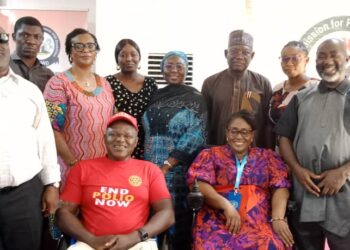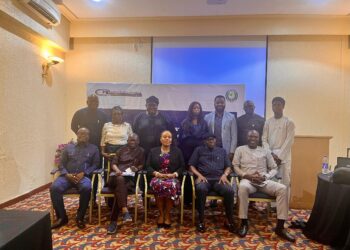Marriage is a universal institution which is recognized and respected in various jurisdictions, although the legal formalities of statutory marriage which this article is limited to may be different in various jurisdictions. Besides the general view that marriage is a social institution from which societies are formed, it is also a union sanctified by God and may probably be termed sacred.
According to Black’s law dictionary, “marriage is the civil status of one man and one woman united in law for life, for the discharge to each other and the community of the duties legally incumbent on those whose association is founded on the distinction of sex.”
Lord Penzance in the case of Hyde v Hyde (1886) LRIP & D 130, also defined the marriage institution as follows:
“I conceive that marriage as understood by the Christendom may for this purpose be defined as a voluntary union for life of one man and one woman to the exclusion of all others.”
Since marriage is usually entered into with the intention that it will be for life as seen from the above definitions, it will not be wrong to say that most divorce cases would be devastating to all the parties involved including the children, the extended family and the society at large.
However, the rate of divorce in the world is becoming alarming. It is a fact that many young marriages end up in divorce in the space of one to six months of celebration. This fact is not only true of the United States where the record is so rampant but also of Nigeria.
The courts of law, through the traditional method of litigation is often bedeviled with countless number of matrimonial cases ranging from marriage dissolution, order for nullity of marriage, nullity of a voidable marriage, judicial separation and so forth, but the most astounding thing about all these forms of marriage conflicts is that it is a private family affair which can best be resolved through Alternative Dispute Resolution Mechanisms; and since conflict is inherent in the development of any society, conflict resolution is equally important to the survival of the society.
Alternative Dispute Resolution is any means of achieving a mutually acceptable solution to disputes; agreed to by parties without recourse to the conventional court litigation. Many disputes have been settled recently through the resort to Alternative Dispute Resolution (ADR) and the fact is not in doubt that ADR is fast becoming the best method not only as a complementary or alternative mechanism to litigation but also as the best strategic method of resolving certain private disputes.
The dispensation of justice in Nigeria is plagued with delay such that the courts are inundated with cases which lasts for several years before they can be determined by the courts. Often, the administration of justice in Nigeria through the court is slow and bedeviled with uncertainties. In an attempt to avert the delay and uncertainty in regular litigations, parties sometimes adopt methods of amicable settlement with little or no court supervision.
This has seen the emergence of Alternative Dispute Resolution which has been covering up in those areas of litigations. Some of the advantages ADR has over litigation is that ADR is “interest based” while litigation is “right based”. This simply means that attention is not so much put on which party is right or wrong in ADR, but on knowing the interests of all parties and reconciling the differences. This is a sharp contrast to litigation which is usually a win-lose situation with a party or both parties leaving the courtroom unsatisfied. Another advantage ADR has over litigation is the fact that it is more private, unlike litigation where all issues will be resolved in public. ADR is also generally less time consuming and more flexible in terms of time, venue and other factors.
In some jurisdictions outside Nigeria, the use of ADR mechanisms is opted for by disputing parties to a marriage as opposed to litigation. This is usually preferred because issues of marriage which are meant to be kept private are exposed in litigation whereas, ADR ensures confidentiality. Asides this, a smooth future relationship between parties and between them and their children (if any) is fostered because of the non-adversarial nature of ADR. It can also encourage early settlement in issues such as alimony, maintenance, custody, etc.
Matrimonial disputes could be in the nature of divorce, separation or annulment of marriage. However, divorce and separation are more often experienced particularly in contemporary Nigerian society. Marriage in Nigeria is regulated by the Marriage Act and Matrimonial Causes Act. Under the Nigerian law, instituting proceedings in court has been the only means through which persons in “troubled statutory marriages” put an end to same. Although the Matrimonial causes provides for reconciliation of parties in divorce proceedings but that should not be the only medium available to spouses who want a divorce. This is because divorcing parties who have already approached the court for a divorce have most likely gotten to the stage where reconciliation may no longer be possible.
Putting an end to a statutory marriage through litigation has both psychological and emotional challenges not only on the primary parties but on the children of the marriage as well as their families and the society at large. Litigation in matrimonial causes has therefore caused both family and society a lot of havoc, suffering, hatred, despises, shame and eternal separation. It creates enmity among family members whereas there is a chance for amicable settlement of family disputes in ADR.
Some disputes are sensitive and confidential in nature (such as divorce) and disputants may prefer settlement in private to one in public glare of court. The courts are usually oblivious to the emotions of the parties involved in the marriage as things which are meant to be kept secret are opened up to the public thereby, leading to emotional trauma of both parties of the suit and their children. In addition, the complexity of court litigation tends often times towards increase in costs which disputants are naturally anxious to reduce.
Since it has become patently clear over the years that a court of law should in fact be the last place to settle a marital disagreement, matrimonial causes should incorporate other methodology beyond the standard adversarial process, which requires the resolution of the dispute by a judge in a courtroom setting.
These approaches include Alternative Dispute Resolution Mechanisms such as negotiation, collaborative divorce, divorce mediation, conciliation and arbitration. Few can argue with the belief that a reduction in contentiousness is best for the entire family, especially and more importantly, the children.
Divorcing spouses in other jurisdictions such as the United States of America use these mechanisms to settle matrimonial causes. Some of them can be used to reach an agreement (eg. Divorce settlement) and then the settlement will be taken to a Judge to sign it which will make it binding on all parties. No one will have to go through the rigorous and antagonistic process of litigation.
In conclusion, the emergence of ADR is a welcome development although it is still alien to matrimonial causes in Nigeria. It is hoped that the incorporation of ADR into matrimonial disputes resolution will help stem the impasse associated with divorce litigation as there is dire need to settle the conflicting interests of the parties involved during and after the end of the marriage. This writer humbly suggests that the Matrimonial Causes Act and Rules should be amended to incorporate the use of ADR in matrimonial disputes in order to eliminate the acrimony that results from divorce proceedings in courts. There is need to have a solid statutory framework regulating ADR for matrimonial causes that will be applicable in the whole Nigeria. Also, there is dire need for all the stakeholders in the justice delivery system to engage in robust public enlightenment on the potentials and prospects of effectuating divorce through ADR.
Ngozi Chinyere Okorie
Junior Counsel
Chukwuma-machukwu Ume SAN & Co.




































